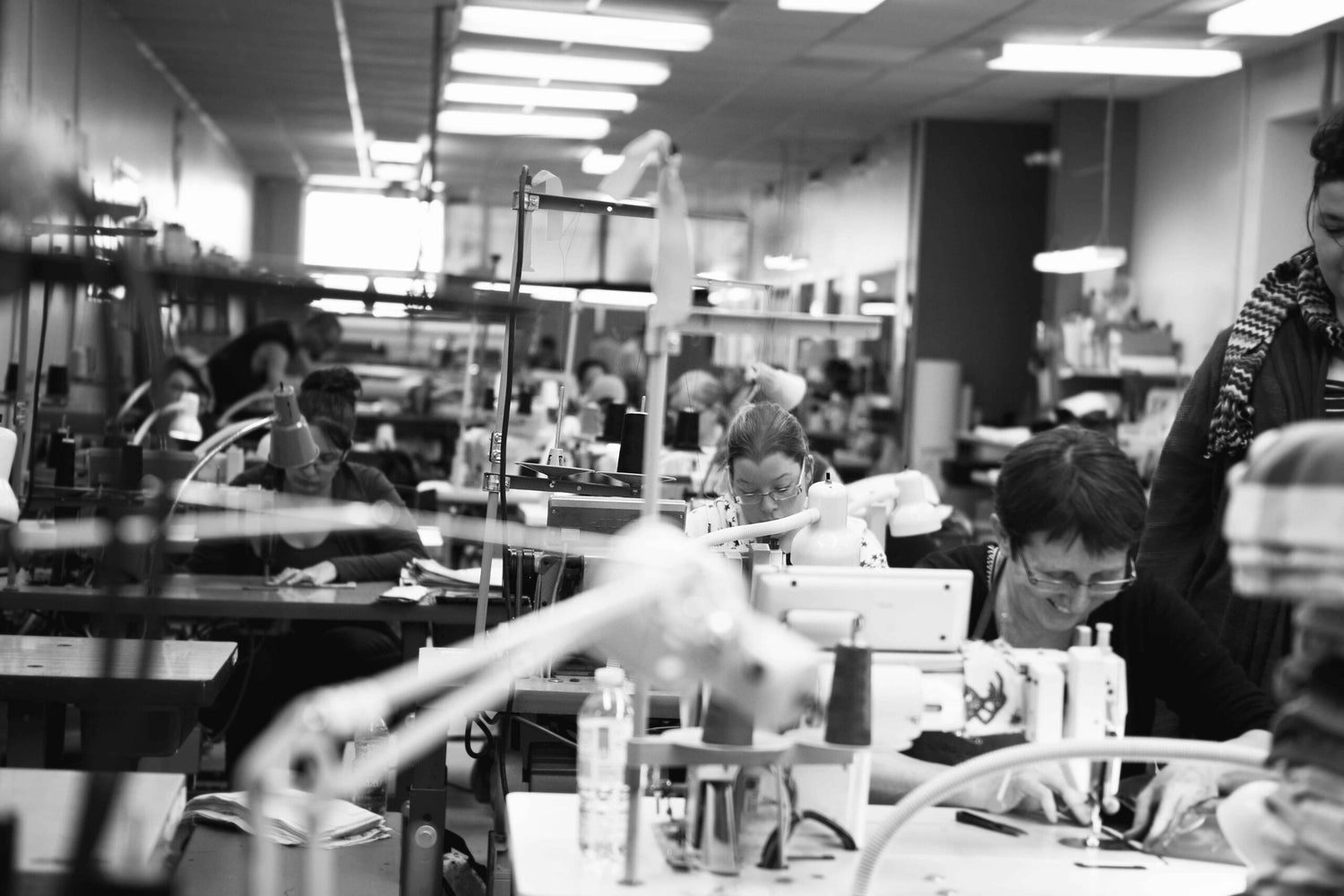In this era of neoliberalism and capitalism, work is of paramount importance. Absence from the labor market is often synonymous with social, political and economic exclusion. With this in mind, it is justified to ask how it is possible to help those who find it difficult to enter the employment sector. Echoing this problem, the following question arises: how does integration into the labor market fit into a process of local production and consumption? It is on the tandem formed by the company NANY Éco & Moi and the Atelier Eclipse that our reflection on the social and local economy will focus.
What is professional integration?
It is first necessary to define what integration into the labor market consists of. This is a process allowing an individual to enter or return to the job market after a prolonged absence. This absence may be linked to factors of a medical, personal, professional, legal nature, etc. In this article, it will be particularly about Atelier Eclipse. Based in Saint-Jérôme, the organization is involved both socially and ecologically, by allowing social and professional integration and by producing from recycled materials.
Offering two-year follow-up programs, the organization supports between 100 and 150 people in their return to work each year. Through this process, a desire to teach animates the staff of Atelier Eclipse. They do a lot of work on the concept of employability in participants, which includes qualities such as efficiency, productivity, interpersonal relations, performance and attendance. Note also the presence of a program specially designed for people suffering from anxiety disorders.

NANY Éco & Moi is a company specializing in the design of reusable bags with a view to sustainable development, seeking to curb the consumption of plastic. The Blainville company does business with Atelier Eclipse to manufacture its bags, an organization whose mission is to help individuals reintegrate into the job market and get involved in their community.
At the heart of the entrepreneurial process
Choosing how products will be manufactured is necessarily a central concern for Quebec companies. Several possibilities are available to them, including collaborative work with local labor market integration organizations. There are several advantages to this collaboration, in particular the possibility of having a positive social impact by helping individuals in precarious employability situations. In addition, doing business with a local organization allows the construction of solid links between the two collaborators. Nany Jean, founder of NANY Éco & Moi, says that it's the human aspect that makes this kind of experience so rewarding. As Pascal Douville, development agent at Atelier Eclipse, points out, this local work allows co-development. It becomes easier to respond to business requests and solve problems. The proximity of this production method has two other positive points: low costs and eco-responsibility. By choosing to rely on a local organization for production, costs are reduced due to the reduced need for transportation and delivery. In addition, due to this absence of travel over long distances, the environmental impact of production is also reduced. In short, collaborating with integration organizations is beneficial on several levels, social, economic and environmental.

Designing maternity dresses with a view to facilitating childbirth, Plus 1 is a Longueuil company that offers more comfortable clothing than the famous hospital gown. Not only does the company design products for pregnant women, but it also entrusts their manufacture to the Batifolerie sewing workshop, whose mission is to facilitate the socio-professional integration of women.
Widespread benefits
Purchasing products resulting from such collaborations is clearly beneficial to the consumer, the program participant and society. This type of consumption encourages the local economy, since in addition to local purchases, there is job creation. By purchasing products from professional integration organizations, individuals are enabled to work while acquiring skills and knowledge that will be useful to them on the labor market. Not only do the profits from the sale of these products remain in the province, but this money is immediately reinvested in the organization to allow it to continue to offer its services. This operation therefore represents a self-regeneration process. In addition, these organizations help build a more active and healthier society, which benefits everyone. Indeed, participation in a professional integration program and the purchase of the resulting products allow the creation of an anchor in the community, whether through civic action or eco-responsibility related to it.

LEO's workshop uses cork fabric in the design of its multiple accessories. Entrusting their manufacture to the Petites Mains organization, the Montreal company is involved socially by allowing women, particularly immigrant women, to learn a trade, to promote their inclusion in their community and break their isolation. Petites Mains gives them the opportunity to fulfill themselves through work.
Encourage such collaborations
As the company NANY Éco & Moi points out, these collaborations must be supported both by the community and by governments, which can offer support to organizations. Atelier Eclipse insists on raising awareness. First, raise awareness among companies, so that they are ready to build business models in tandem with integration organizations. Everything must go hand in hand with an opening of the labor market for graduates of professional integration programs. In addition, awareness must be raised among buyers who must prioritize responsible and sustainable consumption. It seems crucial to increase the visibility of integration organizations, whether through presence at Chambers of Commerce or on the Internet, for example in the media, on social networks or on blogs. The partnerships established by these organizations with businesses must be publicized and mediated to create a ripple effect that would encourage more businesses to do the same. It is also essential that young entrepreneurs are aware of this possibility of collaborative production. Finally, it is time to eliminate false beliefs: subsidized organizations do not charge less. In reality, they aim to convey to the participants their concern for quality, which sometimes requires more time and requires a substantial investment. Thus, increasing tolerance and acceptability is not only a necessity, but also a priority in this awareness-raising process.

Trois fois par jour also collaborates with Petites Mains for the production of its textile collection.
Conclusion
Entrepreneurship is currently in turmoil; ideas fuse, competing in audacity and originality. Leading a project can sometimes be difficult if you want to respect your values of responsible consumption and sustainable development. Socio-professional integration organizations in Quebec therefore represent a profitable solution in terms of production. Vectors of considerable social impact, these organizations are not to be neglected and deserve to have a greater presence in the media sphere. Socio-professional integration is a phenomenon to be encouraged and valued in our current societies. Supporting these organizations means taking civic action on the social, ecological, economic and political levels.
Note: A very special thank you to Atelier Eclipse and NANY Éco & Moi who were generous enough to answer my questions. The remarks that you find in this article are based on the interview that each gave me.

Reviewed By Melanie





Leave a comment
This site is protected by hCaptcha and the hCaptcha Privacy Policy and Terms of Service apply.